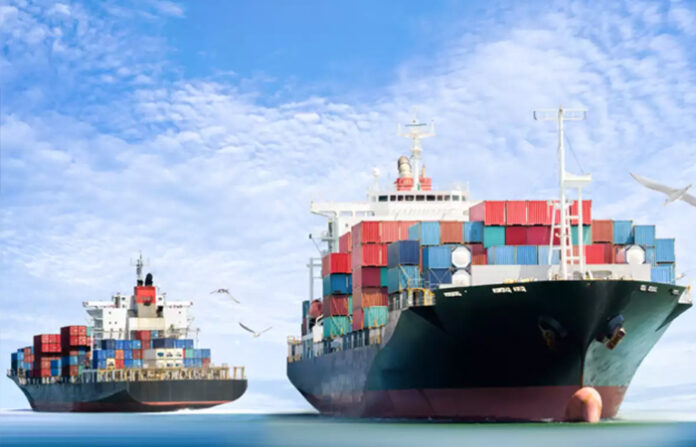Customs regulations for shipping lines engaged in the international transshipment of containers and bulk cargo in Pakistan have been strengthened by the Federal Board of Revenues (FBR).
The FBR has explained the procedure to specify penalty on shipping lines for committing delay in clearance of transshipment goods.
In case of any hazardous material left at the port, the concerned shipping line are going to be responsible to require the cargo back to the port of origin.
If the products stored for transshipment aren’t transshipped within thirty days of their arrival, a notice shall be sent to the shipping line or its agent at the address provided within the shipping documents for transshipment of products from the port.
An extension of up to 30 days could also be granted for the storage of such goods once a written request mentioning the explanations for the delay within the removal of products is submitted to the concerned Assistant Collector of Customs and such an invitation is approved by him.
As per new conditions for the shipping lines, the products shall only be allowed for auction or destruction by approval of the concerned Collector of Customs, who shall only allow it in extraordinary conditions where the shipping line shows its complete inability to ship them out.
The said reasons shall be recorded in writing.
The FBR has also issued a procedure for the transshipment of imported cargo from a gateway port to a far off port. The statement reads, “The following procedure is prescribed for the movement of the International Transshipment (IT) cargo aside from LCL cargo through any seaport in Pakistan, which shall be distinctly manifested intrinsically within the IGM, or carrier declaration uploaded electronically within the Customs Computerized System by the shipping line (VOCCs/NVOCCs) having valid agent licenses.”
It adds, “Such manifest shall necessarily include the subsequent information, including the port of loading; via port (name of the transshipment port of Pakistan); port of destination (final port of discharge at foreign destination); bill of lading (B/L) No.; the name of the foreign exporter; the name of the foreign importer; weight; seal No.; and container No.”
The FBR has also revised the procedure for the transshipment of containerized cargo. The terminal operator (TO) after unloading shall store IT containers at an area earmarked for them within the notified premises of a seaport. The TO shall deploy ample manpower to check the shipper seals against the manifest seals and, in the event that a container is found without a seal or other seal or any damaged seal, the container shall be re-sealed and immediately resealed with the Customs seal in the presence of the custodian and registered as such.


